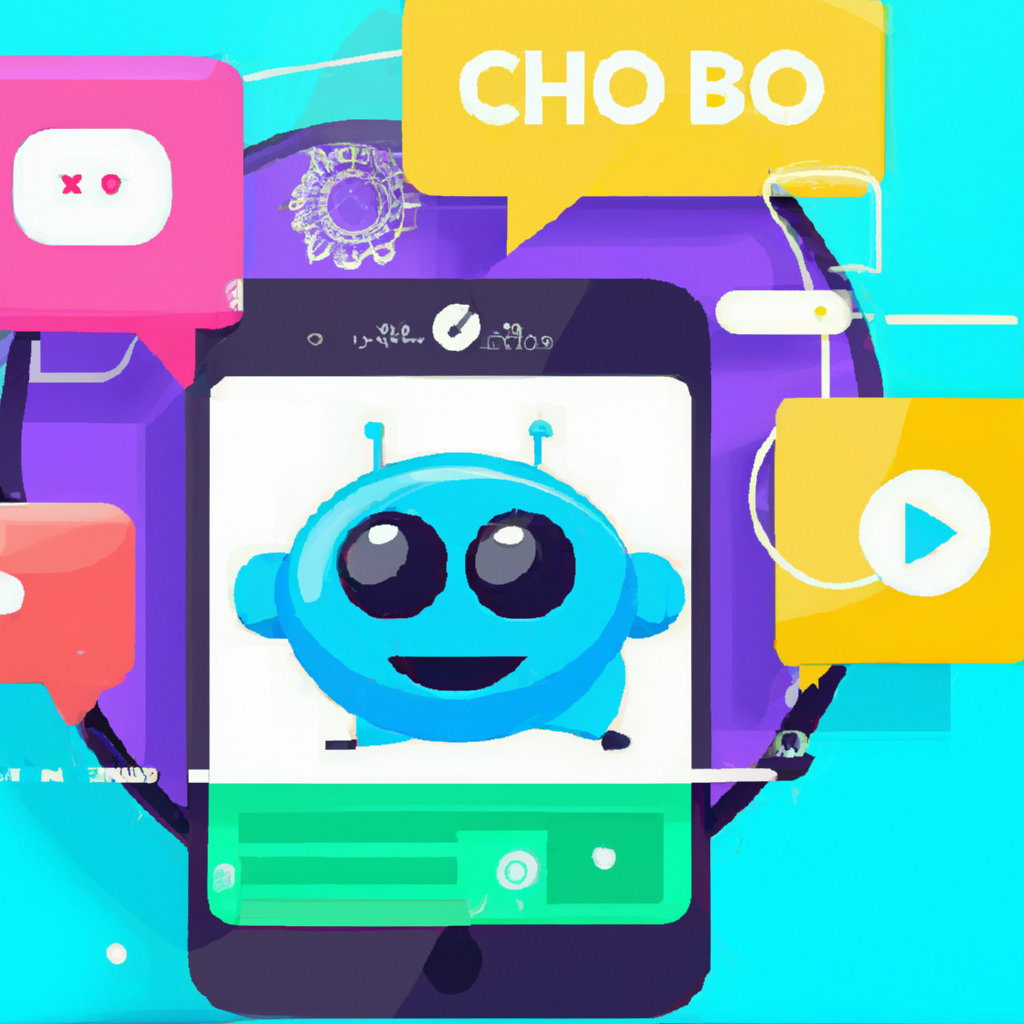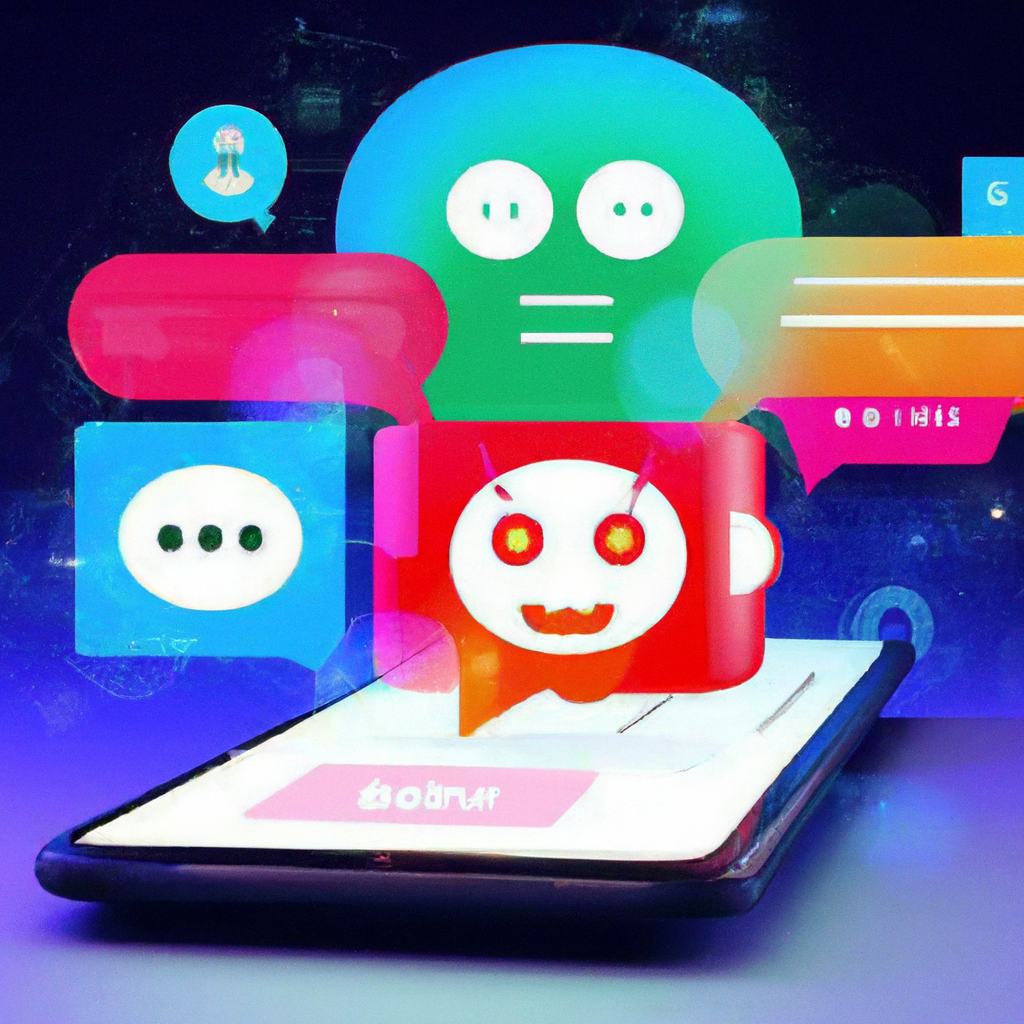Have you ever wondered if it’s possible to integrate chatbots into mobile apps? Well, wonder no more! In this article, we will explore the exciting world of chatbots and examine whether they can seamlessly be integrated into mobile app platforms. From discussing the benefits of incorporating chatbots to exploring the technical aspects of implementation, we’ll cover it all. So, grab your smartphone and get ready to discover the potential of chatbots in the mobile app realm.

Introduction
In today’s digitally driven world, mobile apps have become an integral part of our daily lives. They offer convenience, accessibility, and enhanced user experiences. With the growing importance of mobile apps, businesses are constantly exploring new ways to engage with their customers and provide them with quick and efficient services. One such innovation is the integration of chatbots into mobile apps. Chatbots are revolutionizing customer support and interaction by providing instant responses and personalized engagement at any time of the day. This article aims to explore the benefits, challenges, available technologies, and best practices for integrating chatbots into mobile apps, along with case studies of successful implementations and future trends in chatbot integration.
The Growing Importance of Mobile Apps
Mobile App Usage Statistics
In recent years, the usage of mobile apps has skyrocketed. According to statistics, people spend a significant amount of time on their mobile devices, with 90% of that time spent using mobile apps. The global mobile app market is estimated to reach a staggering value of $407.31 billion by 2026. These numbers indicate the growing reliance on mobile apps for various activities, including shopping, communication, entertainment, and productivity.
Benefits of Mobile Apps for Businesses
Mobile apps offer numerous benefits for businesses looking to enhance their brand presence and engage with their target audience. Some of these benefits include:
-
Increased Visibility: By having a mobile app, businesses can establish a direct and constant presence on their customers’ devices. This allows for increased brand visibility and regular engagement.
-
Improved Customer Engagement: Mobile apps provide businesses with a platform to engage with their customers in real-time, offering personalized experiences and tailored recommendations.
-
Enhanced Customer Loyalty: Mobile apps have the potential to improve customer loyalty by offering exclusive discounts, rewards, and personalized offers to app users.
-
Direct Marketing Channel: Mobile apps serve as a direct marketing channel, enabling businesses to send push notifications and updates to their customers, keeping them informed about new products, promotions, and events.

Understanding Chatbots
What are Chatbots?
Chatbots are computer programs that simulate human conversation through artificial intelligence (AI) and natural language processing (NLP) techniques. They are designed to understand and respond to user queries and provide relevant information or assistance. Chatbots can be integrated into various platforms, including websites, messaging apps, and, of course, mobile apps.
How do Chatbots Work?
Chatbots function by analyzing user input, processing it through AI algorithms, and generating appropriate responses. They rely on pre-defined scripts, machine learning, or a combination of both to understand user intent and provide accurate responses. Chatbots can be rule-based, where responses are based on a set of predefined rules, or AI-powered, where responses are generated dynamically based on the user’s input.
The Benefits of Integrating Chatbots into Mobile Apps
Improved User Experience
Integrating chatbots into mobile apps significantly enhances the overall user experience. With chatbots, users can interact with the app in a conversational manner, making the interaction more natural and intuitive. Chatbots can guide users through complex processes, provide instant answers to their queries, and offer personalized recommendations, resulting in a seamless and enjoyable user experience.
24/7 Customer Support
One of the significant benefits of integrating chatbots into mobile apps is the ability to provide round-the-clock customer support. Unlike human agents who have fixed working hours, chatbots are available 24/7, ensuring that users can get assistance or information whenever they need it. This improves customer satisfaction and eliminates the frustration of waiting for support during non-working hours.
Time and Cost Efficiency
Chatbots can handle multiple customer queries simultaneously, reducing the need for additional customer support staff. This results in significant cost savings for businesses, as they can provide efficient customer support with minimal human resources. Furthermore, chatbots can provide instant responses, eliminating waiting times and ensuring timely assistance to users.
Personalized Engagement
By integrating chatbots into mobile apps, businesses can offer personalized engagement to their users. Chatbots can analyze user preferences, behavior, and previous interactions to provide tailored recommendations, suggestions, and offers. This level of personalization enhances the user experience, increases customer satisfaction, and fosters a sense of loyalty towards the brand.

Challenges in Integrating Chatbots into Mobile Apps
Technical Limitations
Integrating chatbots into mobile apps may come with certain technical limitations. Some chatbots may struggle to understand complex user queries or provide accurate responses, especially if they rely solely on rule-based systems. Advanced AI-powered chatbots can overcome these limitations to a certain extent, but they may require substantial computational resources and expertise.
User Experience Concerns
While chatbots can enhance the user experience, there is a risk of overreliance on automated interactions, which may lead to a lack of human touch and personalized interactions. It is crucial to strike the right balance between automated responses and human intervention to ensure that users feel heard and valued.
Data Privacy and Security
Integrating chatbots into mobile apps involves the collection and processing of user data. Ensuring the privacy and security of this data is of utmost importance. Businesses must implement robust encryption, authentication, and data protection measures to safeguard user information and maintain trust.
Available Technologies for Chatbot Integration
API Integration
API (Application Programming Interface) integration allows for seamless communication between the chatbot and the mobile app. APIs enable the exchange of data and instructions, allowing the chatbot to retrieve information from databases, perform actions, and provide responses based on real-time data.
SDK Integration
Software Development Kits (SDKs) provide developers with tools and resources to integrate chatbot functionality into mobile apps. SDKs typically include pre-built libraries, code snippets, and APIs to facilitate the integration process and customize the chatbot’s behavior according to the app’s requirements.
Cloud-Based Solutions
Cloud-based chatbot platforms offer a convenient and scalable solution for integrating chatbots into mobile apps. These platforms provide a centralized infrastructure to build, train, and deploy chatbots, eliminating the need for extensive technical expertise or on-premises infrastructure.

Considerations for Developing a Chatbot-Integrated App
Defining the Chatbot’s Purpose
Before integrating a chatbot into a mobile app, it is essential to define its purpose and specific use cases. Understanding the intended role of the chatbot will help in determining its functionality, scope, and the level of interaction it should have with the users.
Choosing the Right Platform and Framework
Selecting the appropriate platform and framework for chatbot development is crucial. Depending on the complexity and requirements of the chatbot, developers can choose from various programming languages, frameworks, and platforms that offer robust AI and NLP capabilities.
Understanding the Target Audience
To develop an effective chatbot-integrated app, it is important to understand the target audience and their specific needs and preferences. User research and analysis can help in designing a chatbot that resonates with the target audience, speaks their language, and addresses their pain points.
App Design and User Interface
The design and user interface of the mobile app should complement the chatbot integration seamlessly. The chatbot’s visual representation, placement, and accessibility within the app should be carefully considered to ensure a natural and intuitive user experience.
Integration with Existing Systems
For businesses with existing systems and databases, integrating the chatbot with these systems is crucial. This allows the chatbot to access relevant information and provide accurate responses based on real-time data. Integration should be done securely and efficiently to ensure seamless functioning.
Best Practices for Effective Chatbot Integration
Seamless User Experience
To achieve a seamless user experience, it is crucial to ensure that the chatbot integration does not disrupt the app’s overall flow and functionality. The chatbot should be easily accessible, responsive, and capable of understanding and responding to user queries promptly and accurately.
Clear and Contextual Conversations
Chatbots should engage in clear and contextually relevant conversations with users. By understanding the user’s intent, context, and previous interactions, chatbots can provide more accurate and helpful responses. Clear communication is essential to avoid misinterpretations and misunderstandings.
Effective Natural Language Processing
Natural Language Processing (NLP) plays a vital role in enabling chatbots to understand and interpret user queries accurately. Advanced NLP algorithms and techniques should be leveraged to enhance the chatbot’s understanding of different languages, dialects, and user variations.
Regular Updates and Maintenance
Chatbots should be regularly updated and maintained to ensure optimal performance and relevance. User feedback and data analysis can provide valuable insights for improving the chatbot’s functionality, expanding its capabilities, and addressing any shortcomings or limitations.

Case Studies of Successful Chatbot Integration in Mobile Apps
WhatsApp Business
WhatsApp Business, the business-oriented version of the popular messaging app, integrated chatbot capabilities to enable businesses to provide personalized customer support. Through the use of simple and intuitive chatbot interactions, businesses can automate the process of answering frequently asked questions, providing product information, and even facilitating transactions.
Facebook Messenger
Facebook Messenger, one of the most widely used messaging apps, allows businesses to integrate chatbots seamlessly. These chatbots can handle various tasks, including customer support, e-commerce transactions, and personalized recommendations. Businesses can leverage the vast user base of Facebook Messenger to engage with their customers and provide tailored experiences.
WeChat, a popular messaging app in China, offers a comprehensive platform for businesses to integrate chatbots and provide a wide range of services. From customer support to e-commerce transactions, WeChat chatbots have revolutionized how businesses engage with their customers. WeChat’s chatbot ecosystem is incredibly advanced, with AI-powered chatbots capable of understanding complex queries and offering personalized recommendations.
Future Trends in Chatbot Integration
Advancements in Artificial Intelligence
The field of artificial intelligence is rapidly advancing, and chatbots are poised to benefit from these advancements. Future chatbot integrations are expected to incorporate more sophisticated AI algorithms, enabling chatbots to understand nuanced queries, engage in natural conversations, and provide increasingly accurate and contextually relevant responses.
Voice-Activated Chatbots
As voice recognition technology continues to improve, voice-activated chatbots are expected to become more prevalent. Instead of typing queries, users will be able to speak to the chatbot, making interaction even more seamless and convenient.
Augmented Reality Integration
With the rise of augmented reality (AR) technology, chatbot integration in AR applications is a promising future trend. AR-enabled chatbots can provide users with real-time information, navigation assistance, and immersive experiences, further enhancing the overall app functionality and user experience.
In conclusion, chatbots are a valuable addition to mobile apps, offering improved user experiences, 24/7 customer support, time and cost efficiency, and personalized engagement. However, integrating chatbots into mobile apps does come with challenges such as technical limitations, user experience concerns, and data privacy and security. By leveraging available technologies, considering key factors during development, following best practices, and drawing inspiration from successful case studies, businesses can effectively integrate chatbots into their mobile apps. With future advancements in AI, voice-activated chatbots, and augmented reality integration, the potential for chatbot integration in mobile apps is limitless.
